Edie Melson's Blog, page 140
December 31, 2021
New-Year, New-Life Resolutions for Writers

by Tim Suddeth @TimSuddeth
Is it really 2022 already? I think many of us are looking forward to a much better year than the past few. As much as I don’t feel ready for a new year, I am ready to see the last one move on out. Hasta la vista, baby.
This time of year, many of us work on making a list of New Year’s resolutions. Some people sneer at that because we all know that we break most of our resolutions before spring.
And that is true. And many of them should be broken or discarded. I still think resolutions can be very helpful for all of us. Making a resolution means you’ve taken the time to consider where you are in your life, where it looks like you’re headed, and if and how you want to change it. Socrates once said that the unexamined life is one that is not worth living.
If life is good and you’re happy, wonderful, just keep sailing down the stream. But to the rest of us who want to make a change: it takes identifying what needs changing, the effort changing will require, and deciding how much you can or are willing to do.
If you never examine who you are, you will never know who you can become.
Let’s look at some characteristics of making a good new-year, new-life resolution for writers.
1) Give the new plan time to work.One reason yearly resolutions are so often dropped is that change takes time. And work. We often get discouraged when the results of our sacrifices don’t provide the wanted results as we planned. Like when someone gives up their afternoon salted caramel mocha grande, but instead of losing two pounds, they gain three. (Could have been from the 32 oz. Mountain Dew and the Snickers, but I digress.)
It helps to recognize that any improvement is an improvement. And accept that you might have to tweak the plan as you go along.
2) Recognize that your needs and desires may change.Your life circumstances aren’t the same as they were, or as they will be. You might have a job change, get married or have a change in the family, and/or have a health change.
I have a friend whose daughter may soon be moving because of her job. Any resolutions they make will be subject to change.
We usually see that not fulfilling a resolution as a failure. Which makes me a failure.
And nothing could be farther from the truth.
A resolution is not one of God’s commandments. It’s not written in stone, or even in permanent marker. In fact, we should write all resolutions lightly in pencil. One with a good eraser.
Resolutions are to help us, not to make us feel like losers. If you don’t reach your resolution, it’s okay.
Now, everybody repeat after me, if I don’t reach my resolutions, it is okay.
Resolutions are just to help us stay accountable. (You didn’t have to repeat that part.)
If they make you feel bad about yourself, it’s okay for you to not do them.
3) Make sure it’s your resolution, and not someone else’s.This works in two ways. First, don’t let someone else tell you what you need to do. (Unless it’s your teacher and you’re in school.) You have to choose to do it.
We have all heard about the kid who had to suffer through a music class or a sports team because their parents didn’t want them to become a quitter. And that’s a good lesson for kids to learn. But it can also mean that the kid will be more reluctant to try anything new.
It’s okay if one of your resolutions is to try something new. And then you learn it isn’t for you. My recent guitar lessons were great and I’m glad I did them. But there are other things in my life I want to do now. Maybe I’ll pick it up again. Maybe not.
It is smart to get wise counsel, but only you can decide if the advice is right for you.
Second, it’s easy to get caught up in a herd mentality and want to follow the crowd. Sometimes that’s fun and it can take you to new places. However, there are times you need to take your own path. Jumping on the latest fad, the latest cool thing you hear at a conference, may not be right for you. Just because a friend achieves something doesn’t mean you’re a failure if you don’t Your friend may have more friends on Tik Tok (what a cool name), or their books might come out more often. But that may not be your journey.
4) Make God a part of your plans.God, the Creator, has made us all unique with a special plan for our lives. And most of the people I know weren’t born with an owner’s manual. So we can only find out what God has in store for our life by living it.
Which isn’t a bad thing. God told Abraham, Joseph, and Moses what He had planned for their lives beforehand, and they all almost messed it up. Maybe we should just try to walk in His way. That seems hard enough.
How can we know if we are following Jesus?
First, do you want to? Have you made that the priority? Experience has taught me that it isn’t going to just happen. You have to commit to it.
Then, are you seeking His will by praying and searching His word? Jesus said that if we ask anything in His name, He will reveal it to us. I have a mantra that I repeat to myself constantly. He is Daddy, and I am His little child.
Abba knows what I need, and He wants to give what He has already provided to me. Why should I think He might fail?
The start of a new year, a new month, or even a new week are great opportunities to reexamine our lives and where they are headed. Are there changes, additions, corrections we need to make? Are there people we need to reach out to?
I would love to hear how you make your resolutions. I know some of you have yearly retreats. Others just set aside time to get away. If you have suggestions or help, please leave them below.
And thank you for being so faithful in following us this past year. I can’t wait to see what God has planned for us in this new year.
TWEETABLENew-Year, New-Life Resolutions for Writers from @TimSuddeth on @EdieMelson (Click to Tweet)
 Tim Suddeth is a stay-at-home dad and butler for his wonderful, adult son with autism. He has written numerous blogs posts, short stories, and three novels waiting for publication. He is a frequent attendee at writers’ conferences, including the Blue Ridge Mountain Christian Writers Conference and a member of Word Weavers and ACFW. He lives near Greenville, SC where he shares a house with a bossy Shorky and three too-curious Persians. You can find him on Facebook, Twitter, or at timingreenville.com.
Tim Suddeth is a stay-at-home dad and butler for his wonderful, adult son with autism. He has written numerous blogs posts, short stories, and three novels waiting for publication. He is a frequent attendee at writers’ conferences, including the Blue Ridge Mountain Christian Writers Conference and a member of Word Weavers and ACFW. He lives near Greenville, SC where he shares a house with a bossy Shorky and three too-curious Persians. You can find him on Facebook, Twitter, or at timingreenville.com.
Published on December 31, 2021 22:00
December 30, 2021
Evaluating My Writing Path & Moving Forward in 2022
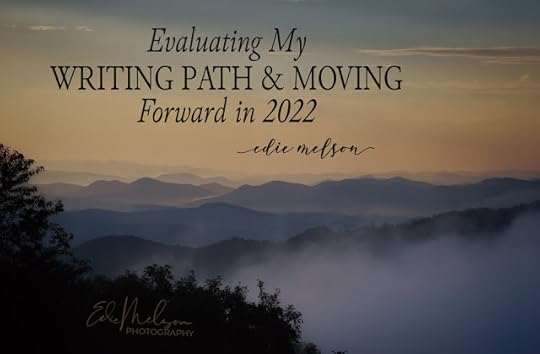
by Edie Melson @EdieMelson
The writer’s path is a journey of a lifetime—one fraught with discovery and discouragement. We can avoid some of its pitfalls if we define that path early on. Today, I want to share some insights into my writing journey and the markers I look for to help me stay at least in the vicinity of the path.
This time of year, between Christmas and New Year's, my thoughts turn backward. I use this time to evaluate the past year and prepare for the next one. I've given up New Year's Resolutions completely and find the freedom from those expectations (and failures) a major relief.
Instead, I spend some time looking back at our spiritual markers for the past year. I evaluate them over all aspects of my life—including my writing life.
This is particularly helpful since staying on the writer's path is difficult. We can loose perspective if we compare ourselves to others because each of our paths are so unique and varied. In the past I've had trouble evaluating my progress because I was comparing my journey to someone else's. I’ve come up with some questions to help me process where I’ve been and where I’m headed.
Questions to Get Me StartedWhat were some of my writing successes this past year? (Not necessarily the most lucrative, but the most rewarding) What were some of my writing setbacks this past year? What writing advice stands out in my mind because it seemed to have been aimed directly at me? What brought me the most joy? (Writing related) What were the most frustrating writing experiences this year?As I map out these spiritual markers, the path God has had me on becomes quite clear. And, by knowing where I've been, it becomes clearer where to go next.
The other thing I do this time of year is to choose my ONE WORD and SCRIPTURE for the next year. I've been choosing a Bible verse for the upcoming year since 1996, but I only began choosing a single word to go with it since 2012. My close friend and author, Beth Vogt started me on it and the practice has proved invaluable.
I use this one word as a filter, a path marker and a reminder of where God is focusing my attention during the year. And every year it has helped clarify my journey when things get murky and confusing.
ONE WORD
This year, the ONE WORD God has whispered to me is RETREAT.
I have to be honest, initially I did NOT like that word. When that word slipped into my soul my response was immediate—I’m not a quitted and I do not give up! I could almost feel God’s laughter at my response.
Turns out, running away & giving up is not the meaning He wants me to focus on. Instead He wants me to draw close to Him, to let Him heal all the wounds the past couple of years have inflicted.
As soon as I accepted this word, I was faced with an opportunity. I could say yes, or I could choose to use the time this opportunity would require to draw closer to God. I said no, and chose God. It turns out, as I’ve investigated this opportunity, that it would have been a situation fraught with stress and temptation. So not only has this word already helped me stay on the path God has, it’s provided protection.
I never thought of RETREAT as a form of God’s protection. But now I’m re-evaluating the word and finding all kinds of cool things that God has for me.
The verse I feel like God has led me to go along with this is:
And He said to them, “Come away by yourselves to a desolate place and rest a while.” For many were coming and going, and they had no leisure even to eat. Mark 6:31 (ESV)
I'd love for you to share your ONE WORD and/or Bible verse for the year, and hear some of your answers to these questions.
Don’t forget to join the conversation!
Blessings,Edie
TWEETABLEEvaluating My Writing Path & Moving Forward in 2022, @EdieMelson (Click to Tweet)
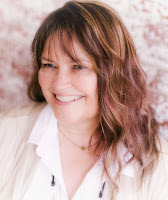 Edie Melson is a woman of faith with ink-stained fingers observing life through the lens of her camera. No matter whether she’s talking to writers, entrepreneurs, or readers, her first advice is always “Find your voice, live your story.” As an author, blogger, and speaker she’s encouraged and challenged audiences across the country and around the world. Her numerous books reflect her passion to help others develop the strength of their God-given gifts and apply them to their lives. Connect with her on her website, through Facebook, Twitter and on Instagram.
Edie Melson is a woman of faith with ink-stained fingers observing life through the lens of her camera. No matter whether she’s talking to writers, entrepreneurs, or readers, her first advice is always “Find your voice, live your story.” As an author, blogger, and speaker she’s encouraged and challenged audiences across the country and around the world. Her numerous books reflect her passion to help others develop the strength of their God-given gifts and apply them to their lives. Connect with her on her website, through Facebook, Twitter and on Instagram.
Published on December 30, 2021 22:00
December 29, 2021
Tips to Help Writers Start the New Year Refreshed & Renewed

by Kathleen Neely @NeelyKneely3628
I sat at my laptop looking at my file of memes. I couldn’t bear to open social media and post one more promo. I was tired. I knew my passion had waned. I loved writing, but I played the ‘if only’ game. If only I could write and not engage in marketing. If only I didn’t have to waste time on the summary. If only I didn’t have to pitch the book. If only I were more tech savvy. I had a bad case of writers’ burnout.
Thankfully, God’s mercies are new every morning. Isaiah 43:18 says, “Forget the former things; do not dwell on the past. See, I am doing a new thing!” God created order in the universe. That order includes changing seasons. We can trust that after the passing of four seasons, it starts all over again. A new year. A fresh start. Exactly what I need.
I don’t want to set aside my passion for writing. I want to renew my passion for writing. I’m working on that goal.
Here are some tips to help the writer in you feel refreshed and renewed. Reorganize. Look at your writing space. What will make it more efficient? Minimize. For me, less is better. Create a more pleasant place to work. Take some time to add color. Hang pictures. Organize books. You will spend many hours in your writing room. Make it a pleasing place to be. Set goals. Look at your schedule—both long term and short. Is it realistic and not overwhelming? Does it leave discretionary time for friends and family? Or time for you to sit back with a cup of steaming hot tea and ponder? In my novel In Search of True North, Mallory’s dad tells her, “I goal without a plan is just a daydream.” Make a plan for 2022. Trust yourself. Writers pour their hearts out on paper and vulnerably share it with the world. There is a tendency to question yourself. Do all you can to grow your skills, and let that be enough. Ephesians tells us that having done all to stand, stand therefore. I know that there are writers far more accomplished than I, and I also know there are some who still struggle. I need to rest on the fact that many people enjoy what I write.Read. What drove you to the writing profession? For me, it was the love of a good book. That which sparked the passion can renew it. I heard a well-known writer say that he doesn’t have time to read. I don’t understand that. Reading not only gives me enjoyment, it also makes me a better writer. Guard your health. Exercise is crucial to a healthy lifestyle. Find a way to enjoy it. Take a walk. Join a class. Play a sport. Whatever works for you. Take breaks. I know that when a novel begins to flow, I can get lost in my writing. It’s not healthy to live in isolation. Spend time doing what you enjoy with people you love. Reconnect with nature. Contact old friends. Your writing will be there when you return. Spend time with God. The only true refreshment comes from God alone. “Those who hope in the Lord will renew their strength. They will soar on wings like eagles; they will run and not grow weary; they will walk and not be faint.” Isaiah 40:31 Wishing you a blessed New Year.
TWEETABLETips to Help Writers Start the New Year Refreshed & Renewed from Kathy Neely, @NeelyKneely3628 on @EdieMelson (Click to Tweet)
 Kathleen Neely is a retired elementary principal, and enjoys time with family, visiting her two grandsons, traveling, and reading.
Kathleen Neely is a retired elementary principal, and enjoys time with family, visiting her two grandsons, traveling, and reading. She is the author of The Street Singer, Beauty for Ashes, The Least of These, and In Search of True North. Kathleen won second place in a short story contest through ACFW-VA for her short story “The Missing Piece” and an honorable mention for her story “The Dance”. Both were published in a Christmas anthology. Her novel, The Least of These, was awarded first place in the 2015 Fresh Voices contest through ALMOST AN AUTHOR. She has numerous devotions published through CHRISTIAN DEVOTIONS.
Kathleen is a member of American Christian Fiction Writers.
WEBSITE: www.KathleenNeely.com FACEBOOK: www.facebook.com/kathy.neely.98TWITTER: https://twitter.com/NeelyKneely3628INSTAGRAM: www.Instagram.com/KathleenNeelyAuthorGOODREADS: https://www.goodreads.com/author/show...BOOKBUB: https://www.bookbub.com/profile/kathl...
Published on December 29, 2021 22:00
December 28, 2021
A Writer's Self Worth - How Writers Can Overcome Performance Based Value (Part 2)
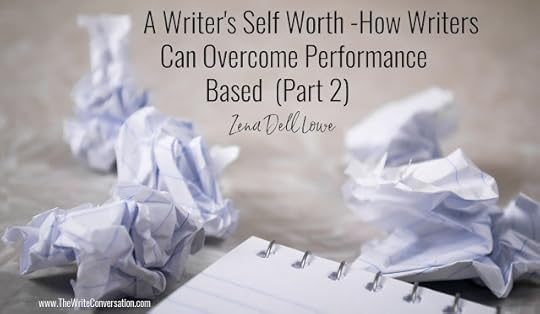
by Zena Dell Lowe @ZenaDellLowe
It’s that time of the year when Christians celebrate the wonderful birth of our Savior, who came to deliver us from the just punishment of our sins. While I cannot compete with the magnitude of this event, I, too, come bearing glad tidings of great joy. Namely, that if you’re an artist who suffers from recurring cycles of crippling self-doubt and existential crisis, behold, I say unto you, there is relief to be found. This post is for anyone who wants to put a stop to these never-ending spirals of despair—or at least find a better way of dealing with them.
Four Key Principles to Help Us Deal More Effectively with this Debilitating Phenomenon
1. Reframe your definition of “success.” For me, successful people are those who have achieved something important in their area of expertise as a result of some kind of praiseworthy performance. To reframe the definition doesn’t mean that we lower our standards or accept mediocrity when we should be striving for excellence. Given the quality of God’s own workmanship (all of creation, no less), God sets a rather high standard for art. Thus, we should always do our very best according to the gifts we’ve been given. However, we tend to assume that success is something that takes place primarily amidst a profession, but what if God looks to a different area to gauge our successes or failures?
2. Switch from a career-focused view of success to a health-focused perspective.The very first thing I do when evaluating my life is look at how healthy I am in terms of my emotional, spiritual and relational health. Are you someone who practices good communication skills and appropriate recovery techniques? Do you know how to be authentic and live in your own skin? Some of these terms might sound wonky and froo-froo, but that doesn’t make them any less valuable. Some useful knowledge has come out of the self-love psychology movement. Use the tools available to help you cultivate healthy habits that can enable you to become the best version of yourself. Instead of focusing on work, strive for personal health as the criteria for measuring your success, and even your work productivity will improve.
3. At the end of each day, examine yourself and determine your level of inner peace.Becoming a healthy person is not something that just happens. It’s something you have to invest in, and works best when we follow some kind of program that utilizes tried and true principles as a guide. But this presupposes that we’re willing to learn how to apply these principles, and then to openly and honestly evaluate ourselves each day, admitting any failures and adjusting our behavior as needed. Program steps may vary, but an end of the day inventory generally includes asking yourself questions such as:
Do I have peace in all things? Or is there business left undone? Have I caused harm to anyone? Do I need to make amends?
If you’ve wronged someone, own it. It’s important to keep short accounts. However, you’re not obligated to stay in relationship with those who are abusive, toxic, or unrepentant of their own sin—not because you don’t love them, but because it isn’t good for you. The goal of your life must be healthiness. At the end of that day, if you were as spiritually, emotionally, and relationally healthy as you could be, your reward will be peace that surpasses all understanding, regardless of any other suffering you might be experiencing. Not that you’ll be perfect, but you’ll no longer be a slave to perfection. You’ll be able to celebrate even small improvements as you do your best to live up to your program, and you’ll base your successes or failures on whether or not you have a clear conscious before God.
4. Since we can’t get rid of performance-based value altogether, check your motives. In truth, we cannot escape the temptation of looking at our accomplishments as proof of our value. But we can separate healthy performance-based habits from unhealthy ones by asking, “Who’s the source of my approval? Where am I looking for that assurance that I'm okay?”
When I’m performing for the approval of others, I want them to see my good deeds and approve of them so they’ll think I’m a good person. But when I'm looking at them to tell me that my good deeds are worthy, I’m in the wrong kind of performance-based valuation. I’ve just entered a work-oriented contract, and I'm going to fail. I’m going to run myself ragged trying to prove my value to others, but I’ll never be able to work hard enough to please everyone. This is a people pleaser trap. Those who try to please others to get approval are doomed.
A healthier kind of performance-based criteria includes feeling good about how you’ve stewarded your time, resources and talents in order to appropriately fulfill your God-given calling, but the key is to work from a place of joy, from the overflow of your heart. The Bible says, "Whatever you do, do it to the best of your ability as unto the Lord." But even here, we must do things because it brings us joy to do them, not so others will think we matter. And not to prove our worth to God, either, because we can't earn His love or make Him love us anymore than He already does. See, when it's about other people seeing it, including God, then it becomes a performance. It becomes hoops to jump through to show others our worth and value.
If, when you receive criticism over your performance, it absolutely devastates you, and you wish the world would swallow you whole, then you’re looking outwards for assurance. Whereas, if, when you hear negative criticism about your performance, you can hear that criticism and evaluate it, and either agree with it and correct it, without it taking a hit on your self-esteem, or hear it and reject it because you know it's not true, without it taking a hit on your self-esteem, then you are looking to the right place for an evaluation of how well you're performing. If you find yourself always trying to work to prove your worth to God, yourself or others, it may be that you need to do some trauma recovery work before you will be able to evaluate work in a healthy way. And I want this for you, because for the record, people are going to criticize your performance. I want you to be secure enough that it won’t shake you when they do.
It’s hard to escape the trap of looking to others for affirmation of our worth. These four techniques have helped me better evaluate how well I am doing and whether or not I'm okay. Because if I evaluate myself on the basis of other people's opinions, then yeah, I'm failing. But if I evaluate based on what I believe God has called me to do and my efforts to fulfill that calling, then it's okay. I’m okay. And I don't have to spiral into these depths of despair and have an existential crisis every time I start to feel like a failure.
If you share this struggle, I hope this helps you, too. Let’s get beyond the existential funk of performance-based value so that we can actually get back to the business of creating, which should make for a very happy healthy New Year.
TWEETABLEA Writer's Self Worth - How Writers Can Overcome Performance Based Value (Part 2) from @ZennaDellLowe on @EdieMelson (Click to Tweet)
Don't Miss the Other Posts in the Series!A Writer's Self Worth - How Writers Can Overcome Performance Based Value (Part 1)A Writer's Self Worth - How Writers Can Overcome Performance Based Value (Part 2)
 Zena has worked professionally in the entertainment industry for over 20 years as a writer, producer, director, actress, and story consultant. Zena also teaches advanced classes on writing all over the country. As a writer, Zena has won numerous awards for her work. She also has several feature film projects in development through her independent production company, Mission Ranch Films. In addition to her work as a filmmaker, Zena launched The Storyteller’s Mission with Zena Dell Lowe, a podcast designed to serve the whole artist, not just focus on craft. In 2021, Zena launched The Storyteller’s Mission Online Platform, where she offers advanced classes and other key services to writers. Zena loves story and loves to support storytellers. Her passion is to equip artists of all levels to achieve excellence at their craft, so that they will truly have everything they need to change the world for the better through story.
Zena has worked professionally in the entertainment industry for over 20 years as a writer, producer, director, actress, and story consultant. Zena also teaches advanced classes on writing all over the country. As a writer, Zena has won numerous awards for her work. She also has several feature film projects in development through her independent production company, Mission Ranch Films. In addition to her work as a filmmaker, Zena launched The Storyteller’s Mission with Zena Dell Lowe, a podcast designed to serve the whole artist, not just focus on craft. In 2021, Zena launched The Storyteller’s Mission Online Platform, where she offers advanced classes and other key services to writers. Zena loves story and loves to support storytellers. Her passion is to equip artists of all levels to achieve excellence at their craft, so that they will truly have everything they need to change the world for the better through story.To find out more about Zena or her current courses and projects, check out her websites at WWW.MISSIONRANCHFILMS.COM and WWW.THESTORYTELLERSMISSION.COM
Published on December 28, 2021 22:00
December 27, 2021
Dipping the Quill Deeper: Writing Out of Our Grief During Christmas
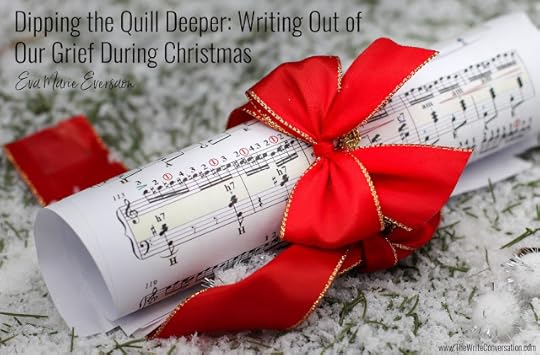
by Eva Marie EversonAsk me to name my favorite Christmas hymn, and I will find it difficult to answer. Perhaps “Angels We Have Heard on High.” Not necessarily because of the lyrics, but because of a memory I have of being about ten years old, dressed in a white choir robe, along with the other children in my hometown church. As our “children’s Christmas cantata” opened, we strolled in near darkness from the back of the church, down two red-carpeted aisles, toward the choir loft, each of us carrying a flickering candle, each of us singing our little hearts out. Angels we have heard on high, sweetly singing o’er the plains . . .
But if you were to ask my favorite Christmas song, well, that’s different. I will answer without hesitation, “I Heard the Bells on Christmas Day.” The melody is haunting, yet inspiring. The words, the same. And, of course, much like the hymn “It Is Well,” knowing the story behind the song makes the singing of it or, in my case, the hearing of it even more powerful.
American poet, Henry Wadsworth Longfellow (1807-1882), the man who created such notable works as “Paul Revere’s Ride” and “The Song of Hiawatha” (both of which every school-aged child living in America during in the 1960s had to memorize), recorded the words to this great song during a time of personal anguish. Two years before penning this poem that would become a song, in a year that would see America divided by the start of the Civil War, Longfellow had lost his beloved wife of eighteen years after she was severely burned in a household accident. Longfellow had been devoted to Fanny, a woman he’d courted for seven years before she finally relented and said “yes” to his proposals of marriage. He never recovered from her death, once writing that he was “inwardly bleeding to death.” Then, two years later, his oldest son Charles, against Longfellow’s wishes, entered the American Civil War.
So it was on that Christmas Day, 1863, that Longfellow heard church bells pealing a reminder of what had been recorded in Luke’s gospel . . . that Jesus had come to bring peace on earth, good will to men. But Longfellow felt no peace. He only felt his grief. Until, in his writing, he came to a startling conclusion:
Then pealed the bells more loud and deep:"God is not dead, nor doth He sleep;The Wrong shall fail,The Right prevail,With peace on earth, good-will to men.”
Not everyone experiences joy at Christmas. Many of us are in one stage of grief or another. In fact, even for those of us who can focus more on the joy of Christmas, as we do and in the midst of that joy-filled doing, there is a part within us that feels the deepest grief. A loved one is no
longer with us. Our happy childhood memories are fading. A family member has just received a dire medical diagnosis. The financial cost of Christmas is greater than the income to repay it.
The list of joy-stealers at Christmas go on and on.
Some attempt to rise above the grief associated with these things. No, they think. It is Christmas, the time we celebrate the coming of the Christ-child. I will not despair. I will not even allow my mind to go there.
But if you are like Longfellow, you—my fellow writer and friend—will pick up your pen and your journal and you will write out of that grief. Because of it. You will give it its rightful place in your heart so that God can bring you to the same conclusions He brought our beloved American poet.
Riding the Waves When I was a teenager growing up outside of Savannah, Georgia, my friends and I enjoyed summer days on Tybee Island. A particularly fun thing to do was to bodysurf, that riding of a wave from where it begins to form, locking hold of its crest, and then “riding” it until loses its power and crashes along the shoreline. Our intent was to find the place—the best place, the perfect place—within the wave to “catch it.” But the fun was the crash and roll following by washing up on the shell-crusted shore, laughing and slightly injured.
Grief, wrote H. Norman Wright, is much like riding waves. Grief . . . takes you to the tops of the waves, and then they break, and you struggle in the froth of emotion. It also brings memories. It will expose who we really are inside. Waves run out of energy. As they move closer to the shore, their power is spent, and they slowly bubble up to the edge of the sand. The more we stand and fight and rail against the waves, the more exhausted we become . . . the more you accept it, hold out your arms to it, and even embrace it, the more you will recover . . . yield to your grief.
Writers are not exempt from grief and Christian writers are not exempt from it, not even during Christmastime. We are, in fact, perhaps more prone to it. But, to ride its wave, we should—we must—pick up our pens and record our feelings. Write them out as we would ride out the perfect wave for bodysurfing until, like Longfellow, the wave gives out and we find the truth within them.
“Then you will know the truth, and the truth will set you free.”Jesus, as written and recorded by John the Apostle John 8:32
[1] “Angels We Have Heard on High” was written in 1862 by James Chadwick (1813-1882), Bishop of Hexham and Newcastle and is usually sung to the hymn tune of "Gloria", a traditional French carol as arranged by American organist Edward Shippen Barnes (1887-1958) which reflects its most memorable feature, its chorus.
[2] Experiencing Grief by H. Norman Wright (Broadman & Holman Publishing Group, Nashville, TN, 2004), pg. 5.
TWEETABLEDipping the Quill Deeper: Writing Out of Our Grief During Christmas, insight from Eva Marie Everson on @EdieMelson (Click to Tweet) Eva Marie Everson is the president of Word Weavers International, the director of Florida Christian Writers Conference, and the contest director for Blue Ridge Mountains Christian Writers Conference. She is the multiple award-winning author of 40 books and countless articles and blogposts. She is also an award-winning speaker and a Bible teacher. Eva Marie is often seen at writers conferences across the States. She served as a mentor for the Jerry B. Jenkins Christian Writers Guild and taught as a guest professor at Taylor University in 2011. She and her husband make their home in Central Florida where they enjoy their grandchildren. They are owned by one persnickety cat.
Eva Marie Everson is the president of Word Weavers International, the director of Florida Christian Writers Conference, and the contest director for Blue Ridge Mountains Christian Writers Conference. She is the multiple award-winning author of 40 books and countless articles and blogposts. She is also an award-winning speaker and a Bible teacher. Eva Marie is often seen at writers conferences across the States. She served as a mentor for the Jerry B. Jenkins Christian Writers Guild and taught as a guest professor at Taylor University in 2011. She and her husband make their home in Central Florida where they enjoy their grandchildren. They are owned by one persnickety cat.
Published on December 27, 2021 22:00
December 26, 2021
An Author's Inspiration from the Resolutions of a Curmudgeon

by Ane Mulligan @AneMulligan
It's that time of year again … when we all think about making New Year resolutions. I'm lousy at deciding what to resolve and worse at keeping any I might misguidedly make.
So, this year, I'm resolutely sticking my tongue in my cheek and offering a few … from the perspective of a curmudgeon. After all, every family has that relative somewhere in their tree. You know him … Uncle Grumpy.
Uncle Grumpy's Resolutions
1. I resolve to take charge of my reactions. I do not have to get annoyed or frustrated if … hey, who left a dirty knife on the dish drain? Can't anyone wash anything and put it away?2. I resolve not to watch the news more than 2 hours a day. We need happiness and good thoughts to guide our … will you look at those politicians. It doesn't matter which side they're on. They're all crooks. Lock the doors.
3. I resolve to stop insisting on my way. Others have valid ways of … who left the duct tape on top of the toolbox? It belongs in the third drawer down. Why do I have to …
Okay, we can chuckle at Uncle Grumpy, but I offer another take on it. Curmudgeons have some value. What, you may ask? Well, their value lies in how we may react to their curmudgeonly ways.
If said curmudgeon is grumpy from the moment of rising, we need to understand we all must take responsibility for our own reactions. We don't have to react in defense or strike back in anger. Besides, scripture tells us a soft word turns away wrath.
Another value curmudgeons have is providing lots of fodder for our books. It's a great characteristic to give an antagonist or a townsperson. So, study the curmudgeon but don't become one.
As for me and my resolutions, I hate to disappoint myself. I've learned if I don't make any, I don't break them, thus I'm not disheartened. So far, it's worked!
But this year, I have decided to make one: In 2022, I resolve to guard how I react to my curmudgeon.
Did I just say that?
TWEETABLEAn Author's Inspiration from the Resolutions of a Curmudgeon from @AneMulligan on @EdieMelson (Click to Tweet)
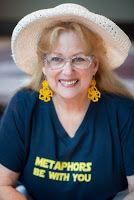 Ane Mulligan has been a voracious reader ever since her mom instilled within her a love of reading at age three, escaping into worlds otherwise unknown. But when Ane saw Mary Martin in PETER PAN, she was struck with a fever from which she never recovered—stage fever. She submerged herself in drama through high school and college. Years later, her two loves collided, and a bestselling, award-winning novelist emerged. She resides in Sugar Hill, GA, with her artist husband and a rascally Rottweiler. Find Ane on her website, Amazon Author page, Facebook, Twitter, Instagram, Pinterest and The Write Conversation.
Ane Mulligan has been a voracious reader ever since her mom instilled within her a love of reading at age three, escaping into worlds otherwise unknown. But when Ane saw Mary Martin in PETER PAN, she was struck with a fever from which she never recovered—stage fever. She submerged herself in drama through high school and college. Years later, her two loves collided, and a bestselling, award-winning novelist emerged. She resides in Sugar Hill, GA, with her artist husband and a rascally Rottweiler. Find Ane on her website, Amazon Author page, Facebook, Twitter, Instagram, Pinterest and The Write Conversation.
Published on December 26, 2021 22:00
December 25, 2021
What Writers Can Learn From Rudolf the Red-Nosed Reindeer
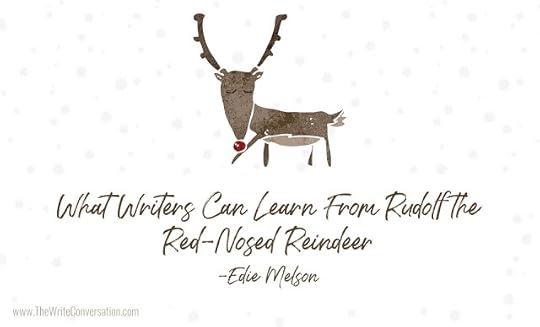
by Edie Melson @EdieMelson
I love all the Christmas specials that come around every year during the holidays, and Rudolph the Red-Nosed Reindeer has always been one of my favorites. I identify with his lack of self-confidence, his heart for his friends and especially his gumption when Santa called on him to step up and guide the sleigh that night.
And it occurs to me that, as writers, there are a lot of valuable lessons in this holiday tale.
What Writers Can Learn From Rudolph the Red-nosed Reindeer:
1. We’re all born with a special gift.
2. At some point we all feel like that special gift is a curse.
3. Hiding who we really are brings out the bullies and naysayers.
4. We all need time to mature into our gift.
5. Trying to live up to the image of who others think we should be won’t bring anything but trouble and heartache.
6. True friends will see beyond our differences and embrace the essence of who we are.
7. We’re given that special gift for a reason and a purpose.
8. Running away from who we are doesn’t ever solve anything.
9. There will come a time when you have to decide to work within your gift, not around it.
And the best lesson of all . . .
10. Being who God meant you to be will bless others as much as you.
How about you? Care to share something you’ve learned from an unlikely source? Be sure to share your thoughts below in the comments section.
TWEETABLEWhat Writers Can Learn From Rudolf the Red-Nosed Reindeer - @EdieMelson (Click to Tweet)
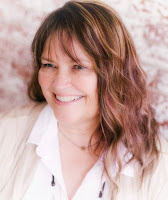 Edie Melson is a woman of faith with ink-stained fingers observing life through the lens of her camera. No matter whether she’s talking to writers, entrepreneurs, or readers, her first advice is always “Find your voice, live your story.” As an author, blogger, and speaker she’s encouraged and challenged audiences across the country and around the world. Her numerous books reflect her passion to help others develop the strength of their God-given gifts and apply them to their lives. Connect with her on her website, through Facebook, Twitter and on Instagram.
Edie Melson is a woman of faith with ink-stained fingers observing life through the lens of her camera. No matter whether she’s talking to writers, entrepreneurs, or readers, her first advice is always “Find your voice, live your story.” As an author, blogger, and speaker she’s encouraged and challenged audiences across the country and around the world. Her numerous books reflect her passion to help others develop the strength of their God-given gifts and apply them to their lives. Connect with her on her website, through Facebook, Twitter and on Instagram.
Published on December 25, 2021 22:00
December 24, 2021
Merry Christmas!
Published on December 24, 2021 22:00
December 23, 2021
“I’ve Come to Save You” – Why Writers Need to Write
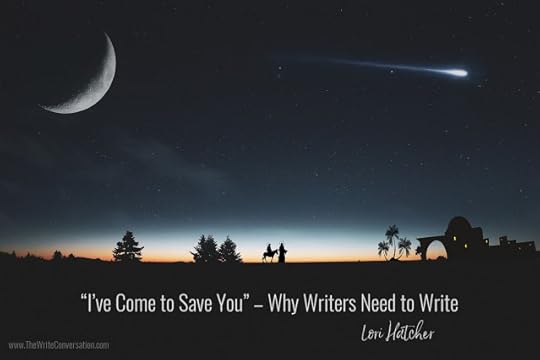
by Lori Hatcher @LoriHatcher2
Don’t stop writing. The world needs to hear your story.
September 11, 2001 began as just another day at the office for Port Authority worker Genelle Guzman. She grabbed a bagel from a kiosk on the first floor of the World Trade Center tower, rode the elevator to the 64th floor, and chatted with her friend and co-worker, Rosy.
Two hours later, she found herself pinned under a million tons of concrete and steel. Grit filled her mouth and eyes. Rubble prevented all but the slightest movements. Darkness shrouded her like the grave.
As she drifted in and out of consciousness, she prayed.
During a period of lucidity, she discovered she could move her left hand, so she did, weakly clawing away at the debris that surrounded her. Before long she could see faint grey light through the hole she had created. Then she heard sounds. The crackle of a radio, a shout, a dog’s bark. Genelle summoned her strength and cried out, her voice muffled by the debris. She called again and wiggled her fingers. Soon she felt a warm hand clasp hers.
“I’m here,” he said. “My name is Paul. I’ve come to rescue you.”
Twenty-seven hours after the tower collapsed, Genelle was lifted from the rubble. She was the last person to be pulled alive from the wreckage of the World Trade Tower. In the twenty years since that day, she’s shared her story with whomever would listen.
Two thousand years ago the world lay buried under the weight of a million sins. The dirt of idolatry, disbelief, and apathy blinded the people. Twisted pillars of nationalism and paganism prevented all but the slightest movement. Spiritual darkness shrouded mankind like the grave.
But one night, a star appeared in the sky, piercing a hole in the darkness.
The words of the prophet Isaiah explained: “The people walking in darkness have seen a great light; on those living in the land of deep darkness a light has dawned” (Isaiah 9:2).
A faithful remnant prayed, and a merciful God heard their cries. He sent a rescuer. To all who call upon Him, He extends His hand, grabs hold, and never lets go.
“I’m here,” He says. “My name is Emmanuel. I’ve come to rescue you.”
He lifts us from the rubble and gives us new life—eternal life. He cleans away the filth, heals our wounds, and sets us on our feet again. Then He sends us out to share our story with whomever will listen.
If you’ve been rescued by Emmanuel, you have a story to tell. Don’t stop writing. The world needs to hear your story.
TWEETABLE“I’ve Come to Save You” – Why Writers Need to Write, encouragement from @LoriHatcher2 on @EdieMelson (Click to Tweet)
 Lori Hatcher loves God even more than she loves chocolate—and that’s a lot. Since He saved her at age 18, she’s been on a quest to know and love Him more. Her deepest desire is for others to join her on the journey. As an author, blogger, writing instructor, women’s ministry speaker, and career dental hygienist, she writes for Our Daily Bread, Guideposts, Revive Our Hearts, and Crosswalk.com. She’s written three devotional books, including Refresh Your Faith, Uncommon Devotions from Every Book of the Bible, and Hungry for God…Starving for Time, Five-Minute Devotions for Busy Women. Her latest book, Refresh Your Prayers, Uncommon Devotions to Restore Power and Praise releases March 1, 2022. Connect with her at www.LoriHatcher.com or on Facebook, Twitter (@lorihatcher2) or Pinterest (Hungry for God).
Lori Hatcher loves God even more than she loves chocolate—and that’s a lot. Since He saved her at age 18, she’s been on a quest to know and love Him more. Her deepest desire is for others to join her on the journey. As an author, blogger, writing instructor, women’s ministry speaker, and career dental hygienist, she writes for Our Daily Bread, Guideposts, Revive Our Hearts, and Crosswalk.com. She’s written three devotional books, including Refresh Your Faith, Uncommon Devotions from Every Book of the Bible, and Hungry for God…Starving for Time, Five-Minute Devotions for Busy Women. Her latest book, Refresh Your Prayers, Uncommon Devotions to Restore Power and Praise releases March 1, 2022. Connect with her at www.LoriHatcher.com or on Facebook, Twitter (@lorihatcher2) or Pinterest (Hungry for God).
Published on December 23, 2021 22:00
December 22, 2021
How One Author Creates Through the Birth of a Character - Part 2

By Henry McLaughlin @RiverBendSagas
Once your character is born, she begins her journey into the story. To follow her on the trek we need use the pieces of physical, mental, emotional, and spiritual knowledge she shows us to understand her motivation and to learn how she reacts to the story. Our story events should be realistic and unpredictable. She will reveal her character as she lives through them.
When my primary character Michael Archer began walking through the pages of Journey to Riverbend, I thought I knew him. He responded to each event as I expected him to. Until he met the town bully, Mark Carstairs. In their first confrontation, Mark accosted Rachel Stone on her job as a waitress. With a swift move, Michael swept Mark’s chair from under him, and the bully landed flat on his back.
In their second confrontation, Michael unceremoniously lifted Mark off his feet and tossed him in the street. None of my prep work showed this. The events revealed one of Michael’s core values—protecting women from abuse no matter the risk to him. If I had stuck with the character I built using the tools and methods I described in my earlier post, I would have missed this and the dramatic turn my story took for the better.
I needed to give Michael room to breathe, react, and respond to events. He needed to show his character in action. I needed to see it. I didn’t throw out my pre-writing character building, but I let Michael expand on that work to reveal a more complex person.
With the female protagonist of the Riverbend series, Rachel Stone, I used a different technique—I interviewed her. As the story move toward publication, the publisher and my editor thought she wasn’t deep enough. They described her as the cliched prostitute with a heart of gold. My character-building tools weren’t helping me get a better picture of her. So, I interviewed her. At one point, I expressed my frustration and said, “Rachel, I don’t get it. What do you want?”
She rolled her eyes and made that noise women make when we men exasperate them—a combination of a sigh and a harumph. She said, “Don’t you get it? Haven’t you read the book?”
That sentence opened my eyes to what I was missing. First, I realized that I was arguing with someone who didn’t exist except in the pages of the book. And I was fine with that. Second, her attitude and words revealed her feisty spirit and her drive for independence. Her deepest value came forth—no man was ever going to control her again.
When I build characters and interview them, there is one important question: I need to know what their goals are. More importantly, I ask why they want this goal. It could be a memory or trauma from their past. It could be the threat of losing something or someone in the present.
In Rachel’s case, it was the threat of losing herself. It wasn’t important for me to know this ahead of time. In fact, for me, it was better for the story if Rachel revealed it naturally through her thoughts and actions.
The victories and challenges a character faces in the story prevents them from becoming stick figures. They become real people with deep emotions and desires. They grow and change over the course of the story. We don’t want readers to read about our characters, we want them to experience their lives in the pages of our stories.How has a character surprised you in a story?
TWEETABLE How One Author Creates Through the Birth of a Character from Henry McLaughlin, @RiverBendSagas, on @EdieMelson (Click to Tweet)
Don’t Miss the Rest of the Series:How One Author Creates Through the Birth of a Character - Part 1How One Author Creates Through the Birth of a Character - Part 2
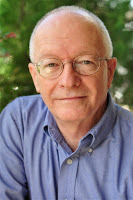 Henry’s debut novel, Journey to Riverbend, won the 2009 Operation First Novel contest.
Henry’s debut novel, Journey to Riverbend, won the 2009 Operation First Novel contest.Henry edits novels, leads critique groups, and teaches at conferences and workshops. He enjoys mentoring and coaching individual writers.
Connect with Henry on his BLOG, TWITTER and FACEBOOK.
Featured Photo by Christina @ wocintechchat.com on Unsplash
Published on December 22, 2021 22:00




